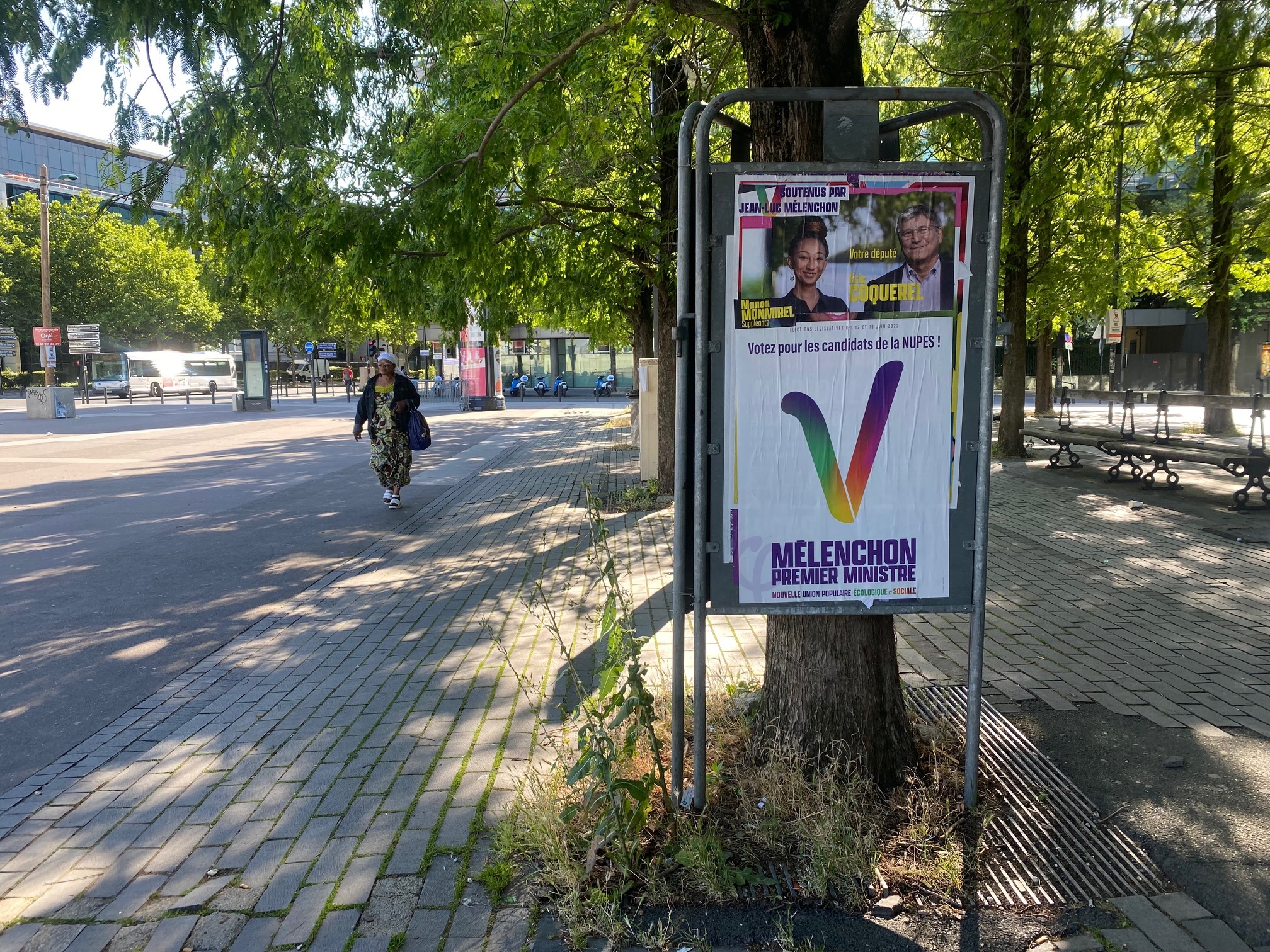In the Strasbourg café on Place Isidore Nerat, on the outskirts of Paris, four Frenchmen, “three real and one fake”, talk about politics while sharing some spirits. The one who does not define himself as an authentic Frenchman, Kader, supports the far-left leader Jean-Luc Mélenchon: “His program is the most social and humane, it is the one that has proposed something different from what we have. They support Macron”, jokes this French citizen of Algerian origin who, at the end of the conversation, confesses that in reality he only has his passport left as an Algerian.
We are in Aulnay sous Bois and this relaxed political gathering outside the polls clearly defines the lack of passion aroused in France by the legislative elections, whose first round is held this Sunday. After the presidential elections last April, in which Emmanuel Macron was re-elected, the French are now voting on the composition of the Assembly. Elections are often unattractive because it is assumed that majority support will be given to the president. However, on this occasion, the thrust of the left-wing coalition led by Mélenchon threatens Macron’s majority in Parliament, which would complicate his governance.
Proof of this lack of interest is that participation at noon reached 18.43%, one point less than in 2017, when 19.24% had voted, according to data from the Ministry of the Interior.
Aulnay is one of the towns in the Parisian belt of Seine Saint-Denis, a department known for its concentration of problems of poverty, unemployment, school failure and lack of integration of a part of the population that is of immigrant origin. In April, it was one of the departments with the most abstention, 61%. Today also, because at 12 only 9% had voted. In the first round, one voter out of two gave his support to Mélenchon. In the second round that faced Macron and Marine Le Pen, they supported the first.
“The one that has managed to mobilize the people the most in this area has been Mélenchon. It has a program that is between the ideal and the real. It is the one that lets us dream of something else,” says Kader.
“Mélenchon has indeed made proposals to improve life in these areas,” also points out Sylvie, who works at the Aulnay City Council and is going to vote for the candidate of this alliance. She says that she has lived in this town for 40 years and remembers that then “seeing someone black on the street was already rare.”
Saint-Denis was at the center of the controversy just two weeks ago on the occasion of the Champions League final, not only because of the chaotic police device, but also because of the incidents that many fans suffered when leaving the Stade de France. In the Parisian belt there is a high percentage of the population of immigrant origin, who were born in France but feel they are second-class citizens, since services and security often do not reach these areas.
“Here today everything is mixed. In the last 15 years Aulnay is one of the areas that has been transformed the most. Although it is true that the city is divided and there are still neighborhoods that have been transformed into ghettos and have not managed to integrate them,” he says. Sylvie.
If in Aulnay the gathering is concentrated in the bar, in Saint-Denis the streets are completely deserted. “There are never people here on Sundays. This is empty », explains a bus driver of Moroccan origin who is waiting outside the empty vehicle while smoking a cigarette, near the Stade de France. «Ah… Is there an election today? What is voting now? I was not aware », he says.
Shaddai, of Cameroonian origin and one of the few passers-by in the area, laments the bad reputation it has: “The banlieue has been stigmatized and it is not true that everything bad about France is here. Most of these towns are not as people believe, although it is true that some people sell drugs or commit crimes to get ahead. But in Paris at two in the morning you have the same problems of violence or insecurity as here, “he says.
Rastii is of Portuguese origin, he is 17 years old and he only has a couple of months left to vote but he is clear about the law that he would ask to be approved in the Assembly: “The free driving license, because it is what gives us mobility and allows us to work “, He says.
“The best is Mélenchon because he thinks more about the environment and about the young people of these towns”, says this young man, who points out: “There is no insecurity here, at least for those of us who are from here. For those who are from outside it can be “, smile.
Fatima, of Algerian origin and who goes shopping with her two daughters, is clear about “who not to vote for, but not who to vote for.” “The problems that occurred in the Champions League final have nothing to do with us, but with a bad security device,” she protests. She recalls that just a few days ago there was a police shooting in Paris and that “insecurity is not something exclusive to these neighborhoods. It is everywhere in France.”
Conforms to The Trust Project criteria
















